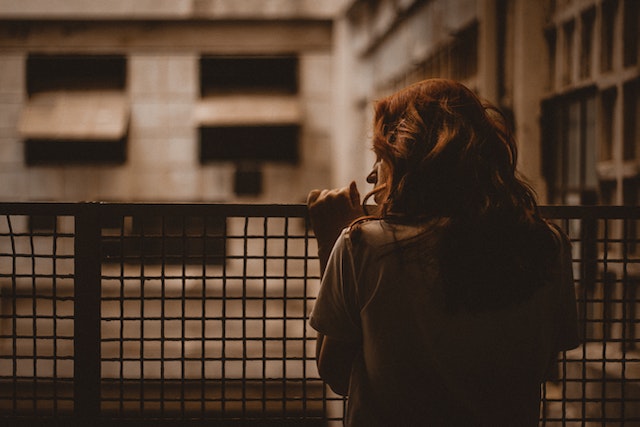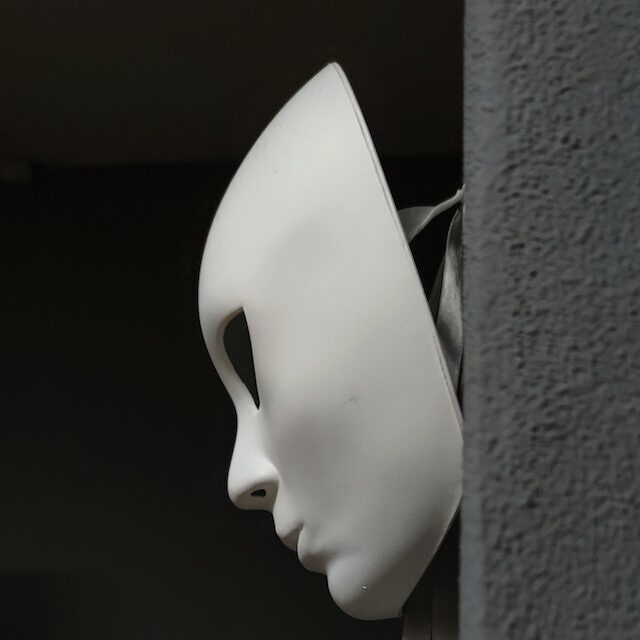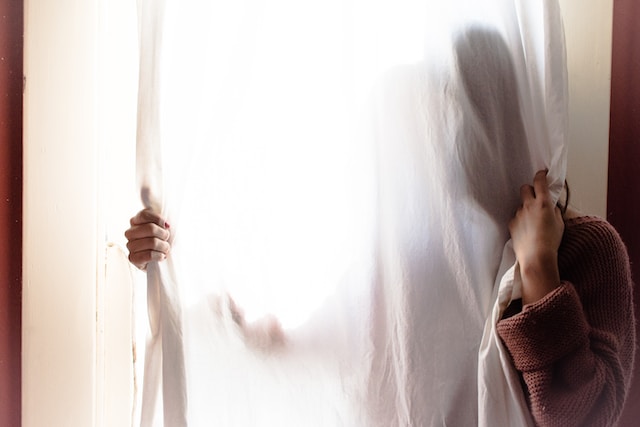The practice of stigmatising prostitutes is as old as business itself. You don’t need to reflect on it in any great depth, and a word such as “whore” immediately enables the user to feel slightly superior themselves. But what really lies behind it?
THEY’RE DIFFERENT!

Selling one’s body for sex has been inspiring strong reactions since time immemorial. Prostitutes can often be identified as plying their trade by their outward appearance, to enable them to sell themselves accordingly, so they are not just recognisable for prospective clients. For many people, the red light district is a disreputable, dark world on the margins, somewhere polite society would rather not talk about – because to this day, some of us still discuss the subject of sex astonishingly little. And it’s definitely dirty there as well – it must be, we conclude, what with all that sex with complete strangers, so many bodily juices and all those diseases. What sort of woman, we wonder, would possibly choose to live and work in such a place?
HOW DOES STEREOTYPING AND STIGMATISATION HAPPEN?
Let’s get one thing clear first of all – judging things is a natural process in its own right. We judge everything and anything we perceive, so we can estimate situations and recognise any risks.
Stereotypes stand for “images in our heads”, for “a stark impression, which actually only concurs minimally with reality; instead, they are produced primarily by the fact that we are judging first and only then looking”.
Categorisation into stereotypes happens partly unconsciously, and partly in a way that is learned, depending on the cultural context. Terms such as “Grandma”, “teacher” or “nurse” all rapidly bring typical features to our minds – and the situation is no different with prostitutes. The difference is that the latter are usually subject to negative stigmatisation, which can lead to social rejection and isolation. When a person is stigmatised, certain features attributed to that person are judged – that they are dirty, for example, willing, or will do anything for money – and subsequently, those affected are mainly identified by means of such stereotypes. They may well internalise the attributions, and attempt to keep their work secret out of shame and due to fear of the possible consequences. The stigmatising person, by contrast, can use such attributions to distance him- or herself more effectively from the perceived negative, and portray themselves as being on the side of “the good”. These circumstances make “outing”, or living and working openly as a prostitute, socially difficult to impossible.
WOMEN ESCAPING PROSTITUTION HAVE NUMEROUS HURDLES TO OVERCOME
Prostitutes don’t usually spend their whole lives doing such work. Getting out can prove to be difficult, however, because it is like switching between two worlds – from the red light district to polite society. and around one woman in ten needs professional support to do so. Depending on their health, mental or financial situation, a variety of different offers may be required. Getting out of prostitution doesn’t just mean the woman in question is sacrificing her income; it often means she loses the roof over her head and social contacts as well.
Some of the women seeking help are already feeling this paradigm change when they first get in touch with official representatives. They describe a lack of understanding, justifications and palpable rejection. But stigmatisations can become problematic in everyday life too. Women are scared that their family – their children – could be confronted by it. They are scared they could lose custody of their children or their new job, and of social exclusion. What if somebody recognises me and “outs” me, they wonder? Not being able to openly share the experience within one’s family or circle of friends can also create huge mental strain.

A HARDSHIP CASE: FORCED OUTING
In 2020, Oliver Pocher ,a well-known voice across a wide range of different media, exposed two women: he outed an influencer and her friend due to their past as a prostitute and porn actress, doing so in a mocking, bullying way. His fan community not only participated in this verbally, in the form of threats and abuse, but also vandalised one of the women’s car. Activist and former prostitute Huschke Mau reacted with a Facebook post and was insulted, abused and threatened with violence as a result.
This modern witch-hunt in the modern, “hands-on” entertainment format may be a special case, of course, but it also shows exactly what people are capable of. And that women’s fears related to outing are not entirely unfounded.
PROTECTION AND ORDERLINESS: THE “WHORE’S PASSPORT”

The German Protection of Prostitution Act produced a raft of controversial sentiments a few years ago, when it proposed introducing a new identity document, the so-called “whore’s passport”. Since 2017, prostitutes have been required to register and to carry this additional ID (including a photograph) on them. Although pseudonyms are permitted, there is real fear of consequences if this extra ID should fall into the wrong hands along with a woman’s personal ID.
The Act also provides for an obligatory annual health consultation (twice a year for women under 21), although this has to be paid for in some of the German federal provinces. Charges for interpreters may also have to be paid.
“Other people don’t have any extra ID containing details of who they are and the industry they work in. For me, the ID is a symbol of the stigmatisation of sex work and our marginalisation from society.”
Josefa Nereus, sex worker and press speaker for the Professional Association for Erotic and Sexual Services.
WHAT NEEDS TO CHANGE?
For stigmatisation to end, it is irrelevant whether emancipated sex workers deal proudly and openly with their profession, the traumatised victims are selling their bodies solely due to fear of poverty, or even if they are forced into prostitution – to retain the language of stereotyping.
It is questionable, moreover, whether society – every one of us, in other words – can learn to deal more respectfully with marginal groups and perceived outsiders. Our judgement system may proceed automatically, but whether it produces danger, and brings with it discrimination and stigmatisation, is entirely up to us.
Translated by Tim Lywood
#StigmaNutte #Hurenstempel #StigmatisierungProstitution #LöschDichPocher #Hurenpass #Zwangsouting #AusstiegausderProstitution #AgainstHumanTrafficking #GegenMenschenhandel #EndExploitation #EndTrafficking #HopeForTheFuture #Österreich
